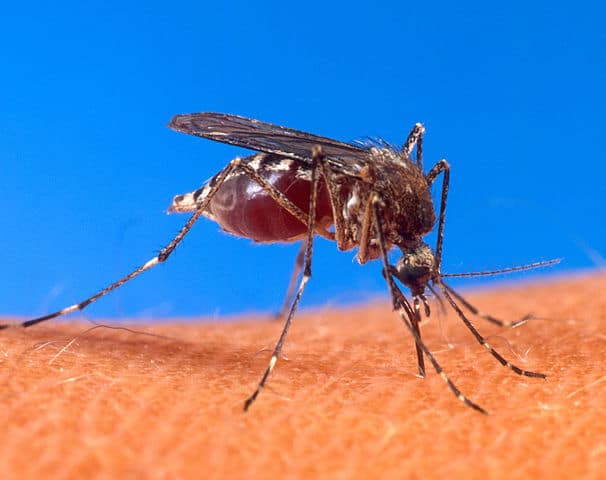Mosquitos are not merely annoying, but they can carry some potentially life-threatening diseases. Residents or their pets who spend any time outside or the tourists who come to the Adventure Coast are impacted by mosquitoes.
Last year, Hernando County’s Mosquito Control department was awarded a $75,000 grant from the Florida Department of Agriculture and Consumer Services (FDACS) to purchase equipment for real-time testing of mosquitoes for diseases. This would eliminate the weeks of waiting for the virus to incubate in chickens or for mosquitoes to be sent to labs for testing. The County provided $22,500 in matching funds.
Since her department was frugal with the funds, Mosquito Control Director Sandra Fisher-Grainger advised the BOCC that she would like to purchase new, rather than used, equipment. To do this, the contract deadline needed to be extended from June 30, 2018 to August 15, 2018. The BOCC voted unanimously to approve the contract extension and the purchase of the new equipment.
Fisher-Grainger followed this request with a presentation of what the Mosquito Control department does. Enhancing quality of life for Hernando County residents comes from Integrated Pest Management, a four-pronged approach to the reduction of mosquitoes.
Surveillance. Finding out just how many of the 40+ species of mosquitoes are in different areas of the county can come from such low-tech methods as counting the number of mosquitoes that land on someone’s arm in a minute, to testing chickens on a weekly basis or attracting mosquitoes with some dry ice to simulate an animal or person exhaling.
West Nile Virus (WNV) and Eastern Equine Encephalitis (EEE) are two of the more common diseases found in this area. Fisher-Grainger said that both Marion and Orange Counties are currently experiencing an outbreak of EEE, concerning for the large horse population in Marion County. Hernando County has not registered any positive findings for either of those diseases this year.
Control. Fisher-Grainger explained the two types of methods for controlling the mosquito population: biological (mosquito-eating fish that are introduced into drainage ditches and ponds) and chemical (which target either mosquito larvae to prevent them from reaching adulthood, or sprays to kill adults). Barrier spraying is designed to keep mosquitoes from leaving an area by attaching to leaves and repelling the mosquitoes.
The department can no longer just schedule the truck to make the rounds of neighborhoods. It must meet specific guidelines set out in Florida Statutes and in the Administrative Code before they can send a truck to spray chemicals. The month of May was filled with many rainy days, preventing any spraying. According to Fisher-Grainger, if the spraying had occurred in the rain, the chemicals would have just fallen to the ground with the rain.
Source Reduction. Fisher-Grainger stated that “home-grown” mosquitoes are the most plentiful and come from sources that are easily preventable: turning over containers, recycling used tires, and eliminating stagnant water around a home. The Tire Amnesty program was determined to be successful due to the number of tires brought in.
Education/Outreach. Increasing public awareness happens through various events and activities is the fourth way that Mosquito Control fights large populations of mosquitoes. These events can be found on the department’s Facebook page and on their website.

